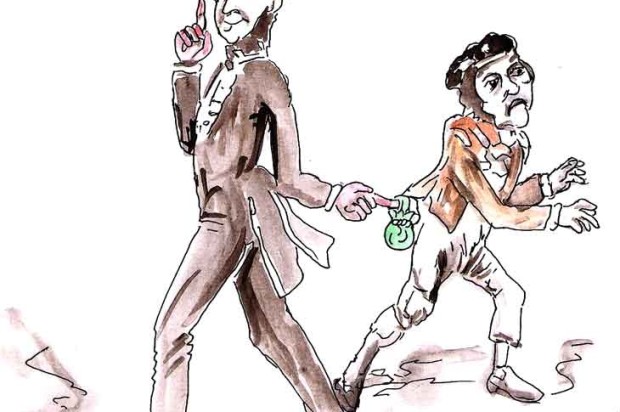
I recently moved into a rent controlled building in SF. During the application process, an erroneous community judgement appeared on my credit report, and despite my showing it had been removed from my other two reports by the respective reporting agencies, I was required to pay double the normal deposit amount.
Ten business days later, I have received notification from the 3rd and final reporting agency that the error was permanently deleted without equivocation and requested my management company apply the excess portion of my security deposit toward a month’s rent.
They are refusing, without explanation, despite over-charging me on the deposit based on information proven to be false. Do I have any recourse before the end of my lease term to be reimbursed for this additional amount? This is not instilling me with confidence that they will employ fair practices upon my move out regarding returning my deposit overall.
Tenant Troubles Archives
Dave’s here to answer your questions every Wednesday, so send them to him at tenant@sfappeal.com. Here’s what to make sure to include in your letter.
It is understandable that you would lack confidence that a landlord will return your security deposit. A report complied by Tenants Together entitled No Deterrent: Improper Security Deposit Withholding in California states: “[I]in excess of $1 billion of deposit money annually is either returned to or withheld from California tenants.” The report also found that 60% of tenants reported that they had experienced unfair withholding of some or all of their deposit. It’s fair to say that hundreds of millions of dollars a year are flat out stolen by landlords.
Yet, as Dean Preston wrote last year, after our legislature failed to pass a law enacting minor reforms to the security deposit statute (California Civil Code section 1950.5), the California Senate denied tenants basic protections that tenants in places like Alabama have.
If you rent an unfurnished apartment, your security deposit cannot exceed twice the monthly rent or three times the monthly rent for a furnished unit. (Civil Code §1950.5(c).) That’s why landlords typically collect a total of three times the rent upon signing a lease (first month’s rent plus maximum security deposit.)
If the management company has collected more than the legal amount, demand that the excess be returned and threaten to sue if it is not returned immediately.
Civil Code §1950.5(l) states in part:
The bad faith claim or retention by a landlord or the landlord’s successors in interest of the security or any portion thereof in violation of this section […] may subject the landlord or the landlord’s successors in interest to statutory damages of up to twice the amount of the security, in addition to actual damages. The court may award damages for bad faith whenever the facts warrant that award, regardless of whether the injured party has specifically requested relief. In an action under this section, the landlord or the landlord’s successors in interest shall have the burden of proof as to the reasonableness of the amounts claimed or the authority pursuant to this section to demand additional security deposits.
Usually this part of the statute is applicable to lawsuits for unreturned deposits after a tenant has vacated, but I don’t see why it couldn’t be used in your case, if the landlord collected too much money at the outset of your tenancy.
FYI, one of Mark Leno’s proposed revisions to the security deposit law last year simply changed “The court may award damages for bad faith…” to “The court must award damages for bad faith…” In this example, a court has already found bad faith, why shouldn’t it be required to punish that bad faith?
No Deterrent reported that tenants prevailed in over 70% of the cases that went to judgment, yet in only 3.5% of the security deposit cases filed by tenants was a landlord assessed a penalty by the court. Landlords keep hundreds of millions of their tenants’ dollars every year and appear to get away with it, despite a showing of bad faith. How is this not grand theft?
Of course, if the landlord collected an amount that falls within the legal limit, you will have to wait till the end of your tenancy to sue them…and yes, given their behavior now, it is likely that you will have to sue them. Reread “Grand Theft Security Deposit” for a list of actions to take to avoid losing your deposit at the end of your tenancy.
Note on the image: I found this image on the web almost five years ago. It was a nineteenth century image of a kid picking a rich dandy’s pocket. I contacted my friend, the artist Francis McIlveen, to retool the image to show the dandy picking the kid’s pocket to illustrate my “Grand Theft Security Deposit” post. It’s still apropos. The rich still steal from our children and landlords still steal security deposits from tenants.









